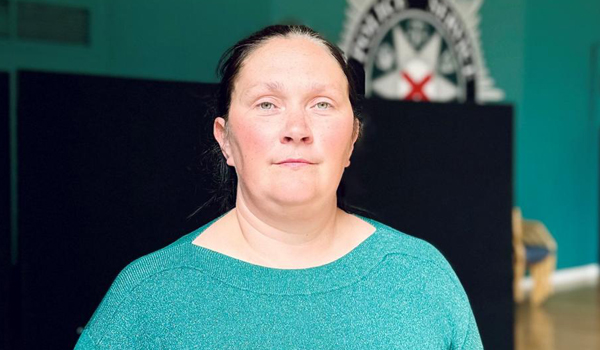PSNI welcomes new strategy to tackle domestic and sexual abuse
The Police Service of Northern Ireland (PSNI) has welcomed the introduction of a new Domestic and Sexual Abuse Strategy that aims to create a society where these types of abuse “are not tolerated”
Unveiled by the Northern Ireland Department of Justice on Wednesday (September 25), the strategy makes clear that domestic and/or sexual abuse cannot be tackled in isolation, and that a whole society approach is required.
Central to this is ensuring the voices of victims, including children and young people, are valued and at the core of decision making.
Data shows that on average, domestic abuse is reported to the police every 16 minutes and a sexual offence every two hours.
Detective Superintendent Lindsay Fisher, head of the PSNI’s Public Protection Branch, said: “We welcome the publication of this strategy today as a joint commitment and another milestone in our journey to transforming domestic and sexual abuse victims’ experiences of the criminal justice system and specialist support across Northern Ireland.
“From report to outcome, we are determined to continuing to improve our service and provide even greater protection for families, including children, while bringing more offenders to justice.
“These crimes make up 22 per cent of all crimes reported to us and they are devastating on victims’ lives, having a long-lasting impact.
“The reality in Northern Ireland is that we are seeing too many repeat offences; repeat victims and offenders. We hope that this strategy provides us with the necessary tools and resources to begin to explore viable intervention and rehabilitation options to help tackle this.
“We have made significant progress in our learning, with the introduction of domestic homicide reviews and have more tools in our armoury now with new legislation but we still have a ways to go.
“We are behind in our societal approach to getting to the root causes of these crimes. This is why we have welcomed the partnership approach to developing this strategy and hope it is the beginning of Northern Ireland’s journey in robustly tackling them head on.”
A Children’s Sexual Offences Legal Advisers (SOLA) scheme will also be introduced, which will provide free legal advice to children and young people affected by sexual crime, as well as a small grant scheme to support the invaluable work provided by the community and voluntary sector.
The new strategy was jointly launched by Justice Minister Naomi Long and Health Minister Mike Nesbitt at NSPCC’s Belfast headquarters.
Ms Long said: “We know that domestic and sexual abuse transcends boundaries of gender, age, sexual orientation, and ethnicity. It is insidious and pervading, leaving an indelible mark. Its victims are those who have been directly impacted by it and those who have witnessed it, or who live in its formidable shadow.
“We are committed to creating a society in Northern Ireland where domestic and sexual abuse are not tolerated, where victims receive the support they need and where those responsible are held to account. This strategy is our sincere attempt to deliver on that aim, so that no one has to live in fear of abuse.”
Mr Nesbitt said: “Everyone has the right to live a life that is safe and free from the fear of domestic and sexual abuse. That is the ultimate aim of this strategy. We are building on what we know works, on evidence-based practice, and we will continue to listen to the voices of those with lived experience.
“Partnership is a key thread running through this strategy. If we are going to tackle domestic and sexual abuse, we need to work together. None of us can do this alone.”
The seven-year strategy is designed around five pillars: partnership, prevention, children and young people, support and provision, and justice.
Bronagh Muldoon, assistant director at NSPCC Northern Ireland, particularly welcomed the third pillar children and young people.
She said: “Sexual abuse in childhood can have a long-lasting negative impact that can reach into adulthood.
“Domestic abuse always has an impact on children. They do not have to hear or witness it, simply living in a home where domestic abuse takes place can cause immense trauma.
“The strategy is an important milestone and provides a focus on key areas that require cross-government action.
“NSPCC NI is committed to working with government and our partners to prevent, recognise and respond to child sexual abuse and domestic abuse in Northern Ireland.”
A three-year action plan has also been published online with a wide range of actions under each pillar.
The Department of Justice said further action plans will be developed over the lifetime of the strategy and will take account of new evidence and any emerging challenges.
The Domestic and Sexual Abuse Strategy is closely aligned to the Executive’s Ending Violence Against Women and Girls Strategy, although, importantly, is gender inclusive.
The strategy was developed in collaboration with the Department for Communities, the Department of Education and the Executive Office. Voluntary and community sector partners were also key to the development of the strategy and all partners will work together over the next seven years to implement it.


